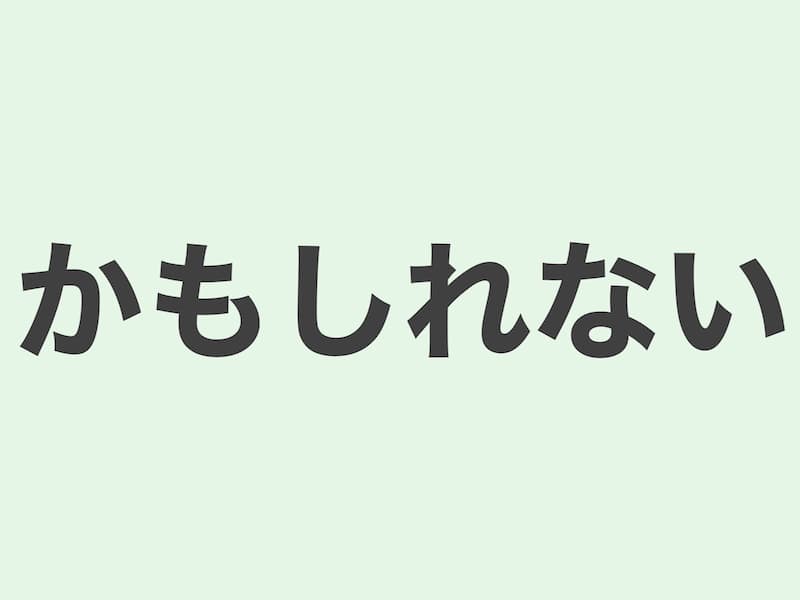説明 (Explanation)
文法(Grammar):(もしかしたら・もしかすると)普通形 + かもしれません(かもしれない)
意味 (Meaning):〇〇の可能性がある。ある事柄が起こる可能性があることを表現する表現です。
英語(English):The phrase “もしかしたら” or “もしかすると” followed by “かもしれません(かもしれない)” expresses a sense of uncertainty or possibility in Japanese. When translated into English, it can be conveyed as “perhaps,” “maybe,” or “possibly.”
JLPT Textbook Recommendations
例文 (Examples)
- (もしかしたら)遅れるかもしれません。(or かもしれない)
- (もしかしたら)、彼女は明日こないかもしれません。(or かもしれない)
- (もしかすると)、明日寒いかもしれません。(or かもしれない)
- (もしかすると)、雨かもしれません(or かもしれない)、傘を持って行った方がいい。
ひらなが (Hiragana)
- (もしかしたら)、おくれるかもしれません。(or かもしれない)
- (もしかしたら)、かのじょはあしたこないかもしれません。(or かもしれない)
- (もしかすると)、あしたさむいかもしれません。(or かもしれない)
- (もしかすると)、あめかもしれませんから(or かもしれないから)、かさをもっていったほうがいい。
英語翻訳 (English Translation)
- I might be late.
- She might not come tomorrow.
- It might be cold tomorrow.
- It might rain, so it’s a good idea to bring an umbrella.





コメント